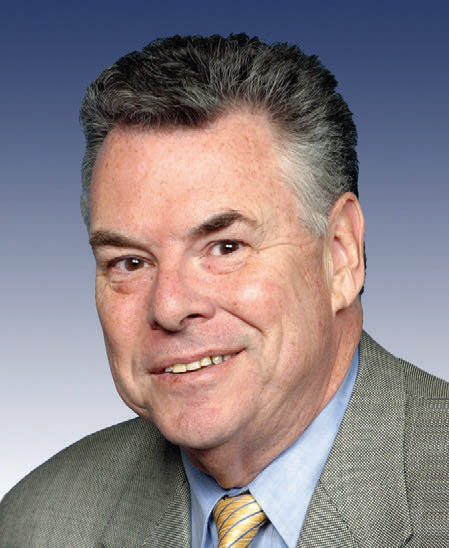 Rep. Peter King of New York, who held the first in a series of hearings on radicalization in the American Muslim community on March 10, has a well-known position on WikiLeaks: It’s terrorism. He urged the Treasury Department in January 2011 “to add WikiLeaks and its founder Jullian Assange to the Specially Designated National and Blocked Persons List (SDN List).”
Rep. Peter King of New York, who held the first in a series of hearings on radicalization in the American Muslim community on March 10, has a well-known position on WikiLeaks: It’s terrorism. He urged the Treasury Department in January 2011 “to add WikiLeaks and its founder Jullian Assange to the Specially Designated National and Blocked Persons List (SDN List).”
His letter to the Treasury Department explains his opinion, “The U.S. government simply cannot continue its ineffective piecemeal approach of responding in the aftermath of Wikileaks’ damage. The Administration must act to disrupt the Wikileaks enterprise. The U.S. government should be making every effort to strangle the viability of Assange’s organization.”
Presumably, King would like to see WikiLeaks “strangled” in the way that the Committee on Islamic-American Relations (CAIR) is being cracked down on by the FBI. King explicitly called for Muslim-Americans to reject CAIR, which he said “was named as an unindicted co-conspirator in the terrorist financing case involving the Holyland Foundation.”
In the leadup to this hearing I found it shocking and sad that the mainstream media accepted CAIR’s accusations as if it were a legitimate organization. Thankfully, FBI Director Mueller has ordered the FBI to cease all dealings and contact with CAIR. I would hope that all law enforcement officials would follow the lead of the FBI Director.
[UPDATE - 2010-03-09]
The Middle East Institute has posted video of a US-Libya business relations event that WL Central mentioned previously. The event called "US-Libya Relations: Surviving the WikiLeaks Controversy?" featured two individuals, David Mack and Charles Dittrich, with connections to the US-Libya Business Association.
The person introducing the event in the video (presumably a person with the Middle East Institute which hosted the panel) explains the WikiLeaks cables released on Libya rocked the relationship between the US and Libya. "The US' very able ambassador to Libya, Gene Cretz, was quoted in secret cables as talking about Muammar Gaddafi's reliance on a voluptuous blond Ukrainian nurse. That did not go down well in Tripoli."
Ambassador Cretz was recalled. But, as Mack says when he gets up to speak, a meeting in mid-December was held between business leaders from the US and Tripoli and there was a willingness to push onward and forget what had been revealed.
Previous post which appeared on 2010-02-22 appears below.

The only people more terrified of the foreign mercenaries or anti-aircraft missiles or the fighter jets deployed to shell protesters than Libyans are the businessmen working for oil and gas companies in Libya. In fact, this whole democracy thing is a nightmare for companies in Libya that fought just over two years ago to ensure the market in Libya would not be restricted by an amendment that aimed to prevent companies from doing business with rogue states designated as state sponsors of terrorism.
Financial Times reports escalating violence in Libya has kept oil prices at two and a half year highs. Many of the oil ports and refineries are now shut down. International oil companies are evacuating their staff from the "world's 12th largest oil exporter."
All the violence, protest and political tension in Libya and the wider Middle East and North Africa seems to have led the US-Libya Business Association to make a cold calculated decision to disappear from the Internet for the time being until calm returns to Libya. RAW STORY reported on February 21 that the website of the US-Libya Business Association (USLBA) went down.

Stories of what happened as Egyptian women protested in Tahrir Square and called for equality and fairness in Egyptian society in honor of International Women’s Day are circulating. Female Egyptians hoped to have a million women march. Unfortunately, only a few hundred women came out to demonstrate and the action turned violent as men disrupted what should have been a peaceful day of celebration.
Christian Science Monitor reports men showed up and shouted, “Go wash clothes!” And said, “You are not married; go find a husband,” and “This is against Islam!” Men suggested women already have enough rights. They argued now was not the time to argue for rights.
Men decided women had been demonstrating for too long and violently scattered the women provoking the military to fire shots in the air. Sexual harassment, which many female Egyptians said during the uprising had disappeared, happened during the “melee.”
Cairo-based reporter and writer Ursula Lindsey reports one “48 year-old accountant” was "horrified by the protesters’ demand that women be allowed to run for the presidency.” He suggested Egyptians would “reject this completely” and added, “Women have a role, and men have a role. We’re used to men ruling. Who rules in my house? My father. And who rules in my family? I do.”
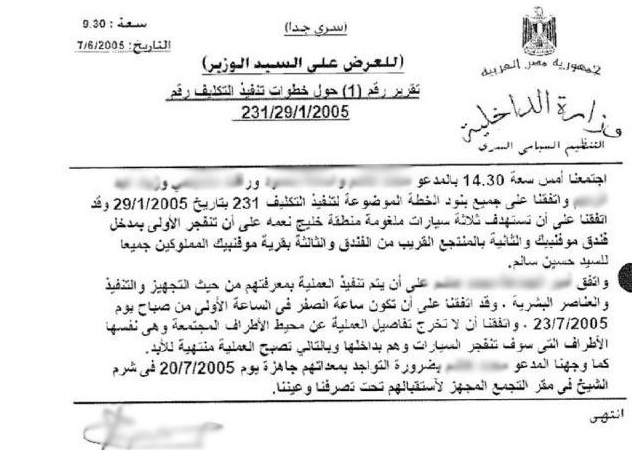 Egyptians stormed Amn Dawla, a State Security building in Nasr City, over the weekend. Protesters were aware that security was burning, shredding and destroying documents that might incriminate State Security officials in any future investigations or pursuits of accountability in the aftermath of the toppling of President Hosni Mubarak. They entered the building, started taking photos and video and took some of the documents to scan and post online or hand over to the armed forces so State Security could not be free from justice.
Egyptians stormed Amn Dawla, a State Security building in Nasr City, over the weekend. Protesters were aware that security was burning, shredding and destroying documents that might incriminate State Security officials in any future investigations or pursuits of accountability in the aftermath of the toppling of President Hosni Mubarak. They entered the building, started taking photos and video and took some of the documents to scan and post online or hand over to the armed forces so State Security could not be free from justice.
Inspired by WikiLeaks, Amn Dawla Leaks was instantly born. Twitter and Facebook accounts began to circulate the documents. The information, in Arabic, received many requests for English translation. It became clear there was much world interest and many would want to know what was uncovered.
One main revelation that has come out in the first days involves a bombing that up to this point was believed to have been perpetrated by Bedouins or Islamists. In the resort city of Sharm el-Sheikh on the southern tip of the Sinai Peninsula, about eighty-eight people were killed.
The document describes three car bombs that are to be detonated at the first entrance of the Movenpick Hotel. The second is to be detonated near the hotel and the third is to be detonated at a hotel in the village of Movenpick. All sites of detonation are intended to damage property owned by Hussein Salem. The bombings are planned for Revolution Day, a day that commemorates Gamal Abdel Nasser’s overthrow of King Farouk in 1952.

*Special thanks to C-Cyte for recording my tweets and posting them online in a post for people to view if they do not normally use Twitter.
One hundred days ago, WikiLeaks began to release the US State Embassy cables. The release event, which continues, became known as Cablegate.
A future post will include a look at Cablegate and what its impact on journalism, international diplomacy, and human rights has been and what its role has been in world events like the uprisings and revolutions the world that are currently unfolding. For now, it is worth recounting what has actually been revealed because of the release.
One common denominator can be found in a majority of the cables: corruption. For all the talk of this country and that country being corrupt and that country being so corrupt it's gone, the plain fact is that between all the countries of the world, perhaps as a result of American coercion and/or threat of force, the world is one corrupt planet.
WikiLeaks has managed to partner with 50 media outlets over the course of the past months. 5,287 of 251,287 cables have been released so far. This not only means there will likely be a 200th, 300th and 400th Day of Cablegate but also means there will be many more revelations to come in the next year.
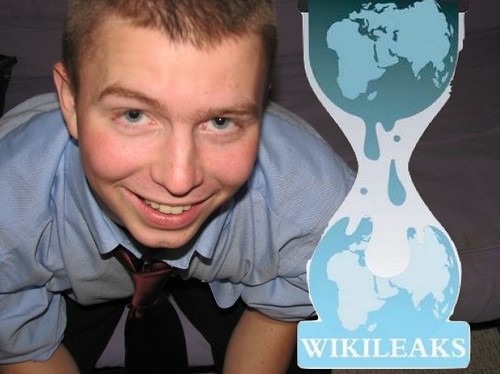
Manning's Forced Nudity at Quantico and Spanish Guantanamo Investigation Continues; Plus, 100 Days Since Cablegate Began
This week's guest was freelance investigative journalist, author and filmmaker Andy Worthington, who is known for covering Guantanamo Bay prison, torture and the wider "war on terror." [For Worthington's full bio click here.]
Worthington discussed the forced nudity that former Pfc. Bradley Manning (the whistleblower alleged to have leaked classified information like the "Collateral Murder" video to WikiLeaks) is being subjected to by the US military at Quantico Brig in Virginia and the 22 additional charges, which the military filed against Manning. [To read Worthington's article on Manning published this week, click
here.]
Worthington also talked about an article he recently published on a Spanish Guantanamo investigation into Bush administration officials' involvement in the torture and abuse of prisoners at Guantanamo. WikiLeaks revelations in the cable that showed US government officials interfered and worked to halt a Spanish investigation have pushed the national court to renew its efforts to bring those involved in torture to justice. And so, Worthington also talked about WikiLeaks' impact so far on helping detainees at Guantanamo get one step closer to justice and acknowledgment of the torture and abuse they experienced.
To listen to the podcast, just click play on the widget below. Or, you can go download the .mp3 file here. (Or, find it on iTunes by searching for "CMN News.")
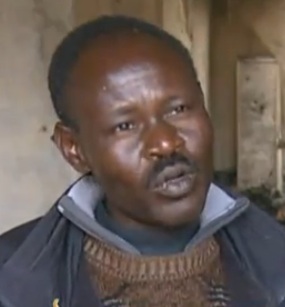 A cable from December 2007 features Gaddafi Development Foundation Executive Director Dr. Yusuf Sawani discussing trans-national terrorism threats and security with US diplomats. The director talks about the fact that a million sub-Saharan African guest workers are resident in Libya and says it should be a “cause of concern.” The workers are a concern because Dr. Sawani believes any of those individuals could possibly commit an act of terrorism. In recent days, many of those guest workers have fled, as Libyans have grown suspicious and attacked a number of black Africans due to reports that Leader Muammar Gaddafi hired “black African mercenaries.”
A cable from December 2007 features Gaddafi Development Foundation Executive Director Dr. Yusuf Sawani discussing trans-national terrorism threats and security with US diplomats. The director talks about the fact that a million sub-Saharan African guest workers are resident in Libya and says it should be a “cause of concern.” The workers are a concern because Dr. Sawani believes any of those individuals could possibly commit an act of terrorism. In recent days, many of those guest workers have fled, as Libyans have grown suspicious and attacked a number of black Africans due to reports that Leader Muammar Gaddafi hired “black African mercenaries.”
The latest from the United Nations Office for the Coordination of Humanitarian Affairs (OCHA) indicates 191,000 or more have fled Libya to Egypt, Tunisia and Niger. A previous report estimated around 80,000 Pakistanis, 59,000 Sudanese, 50,000 Bangladeshis, 26,000 Filipinos, 2,000 Nepalese and other African and Asian migrant workers are hosted by the country.
OCHA reports have been tracking the risk of violence migrant workers face. In a March 3 update, OCHA notes, “Sub-Saharan nationals remain at risk of violence from local populations on suspicion of being Government-recruited mercenaries.” A report on March 2 detailed the needs of those fleeing Libya highlights the need for protection. It reads:
Systematic Corruption ruptures Vietnam with inequality
Since the mid-1980s, the time when Vietnam launched the ‘Doi Moi (industrialization)’ project to boost the national economy, Vietnam has recorded remarkable GDP increase rate, 7 to 8% a year. However, the economic inequality gap and government debts are huge, and show no sign of shrinking.
Primary reasons for the problems lie in the structure of the ‘industrialization’. The only legal political party, the Vietnam Communist Party, utilized state owned enterprises(SOE) as useful tools which enable the government to take a firm grip on the state economy. In a rare thesis discussing the privatization of the Vietnamese economy, Fredrik Sjöholm pointed out that it’s actually a state takeover of economy in disguise of ‘privatization’; about one-quarter of state revenues come from SOEs and the state can take control of any SOEs by having ‘minority state ownership share’(Sjöholm, 2006)
Commonplace collusion between politics and economy, interwoven through shares, squandered bailout money and venal practices in the name of ‘industrialization’, generated astounding breeding ground for corruption and rapidly increasing debts. The ‘industrialization’ process had few constructive plans behind it, which produced obfuscated ownership responsibility while working on ad hoc economic strategies. This opened the door for private, often political, actors to ‘hijack’ the real control of the firms.
 Update: Edited podcast episode is now posted.
The fourth episode of this weekly podcast, which looks at stories related to WikiLeaks from the past week, featured guest Kevin Zeese, who is with the Bradley Manning Support Network and WikiLeaksIsDemocracy.org, which is a project dedicated to preventing the prosecution and extradition of Assange to the United States. The podcast also welcomed CMN News correspondent Chris Novembrino, who provided commentary throughout the episode.
Update: Edited podcast episode is now posted.
The fourth episode of this weekly podcast, which looks at stories related to WikiLeaks from the past week, featured guest Kevin Zeese, who is with the Bradley Manning Support Network and WikiLeaksIsDemocracy.org, which is a project dedicated to preventing the prosecution and extradition of Assange to the United States. The podcast also welcomed CMN News correspondent Chris Novembrino, who provided commentary throughout the episode.The struggle for democracy, unleashed indirectly in Egypt by the leaking of thousands of secret documents from the U.S. Diplomatic service, is particularly complicated due to Egypt’s political situation in the Middle East. The necessary succession of the Mubarak regime results in a very fragile state of affairs, as the important players in area, Israel and the U.S. on one hand, and Palestine, Syria and Iran on the other, all know how important it is to count the future Egyptian president as an ally. Precisely because of this, in a 2007 cable 07CAIRO1417 the U.S. ambassador in Cairo says that “Presidential succession is the elephant in the room of Egyptian politics. Despite incessant whispered discussions, no one in Egypt has any certainty about who will succeed Mubarak, or how the succession will happen”.
As of now, Egypt is entering its third week of paralysis; protests and riots are still widespread across the country and without a sign of relent. President Mubarak has hidden himself and even though he has come out to assure the nation that he will not run for President again, the government’s stance on the matter indicates that he does not want to step down from his office, but rather that he prefers to stall and see if the situation calms down. To relieve some tension he shifted power toward Omar Suleiman, the vice-president and the strong arm currently in charge of running the country. This political maneuver is revealing after taking into account the strategic interest from Egypt’s allies, Israel and the U.S. It is obvious that even though the Obama administration has publicly asked Mubarak to step down and allow a democratic transition, they did this knowing that they could never permit a figure such as Amre Moussa’s, the secretary of the Arab League, to lead the country.
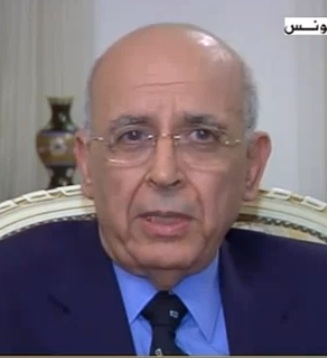 Time for a Cablegate farewell to interim PM Mohamed Ghannouchi. The revolution wanted Ghannouchi gone the moment he stepped into power. His ties to the Ben Ali regime could not be overcome.
Time for a Cablegate farewell to interim PM Mohamed Ghannouchi. The revolution wanted Ghannouchi gone the moment he stepped into power. His ties to the Ben Ali regime could not be overcome.
Tunisian youths were allegedly throwing rocks breaking windows right after the resignation speech. Reuters reports security forces "fired tear gas and rounds in the air to disperse them. There was no sign of any wounded."
Ghannouchi was one official the US State Department thought might succeed Ben Ali if he ever became fatally ill. This is how Ghannouchi was described in a January 9, 2006 cable titled, "Succession In Tunisia: Finding A Successor Or Feet First?":
Prime Minister Ghannouchi: (8/18/1941) A career technocrat and trained economist, Ghannouchi has served as Prime Minister since 1999. Ghannouchi is rumored to have told many that he wishes to leave the GOT but has not had the opportunity. The length of his service as PM also suggests that Ben Ali does not view him as a threat and that he is unlikely to be viewed as a qualified successor. However, average Tunisians generally view him with respect and he is well-liked in comparison to other GOT and RCD officials.
Average Tunisians' attitudes (whatever that demographic is to US officials) appear to have been made insignificant by the revolutionary organizers who continue to move Tunisia closer to the society they envision.
 Libya’s deputy foreign minister, Khaled Khaim, has reportedly told European Union ambassadors in Tripoli that al-Qaeda has set up an Islamic emirate in Derna in Eastern Libya. He allegedly said a former Guantanamo Bay detainee is heading the emirate. Residents in Derna deny this has happened.
Libya’s deputy foreign minister, Khaled Khaim, has reportedly told European Union ambassadors in Tripoli that al-Qaeda has set up an Islamic emirate in Derna in Eastern Libya. He allegedly said a former Guantanamo Bay detainee is heading the emirate. Residents in Derna deny this has happened.
Residents in Derna deny this has happened. Al Jazeera posted this exclusive with the "man accused by the Libyan government of leading an Islamist emirate in Derna, Libya." Abdul Hakeem Al Hasadi said reports of an "emirate" were the result of pure propaganda and said the Gaddafi is circulating this propaganda because he is a former political prisoner:
"I am, Abdul Hakeem Al Hasadi, a Libyan citizen and a former political prisoner. I would like to read the following statement in response to lies made by Dictator Gaddafi and his propaganda machine. I tell them that I am one of the participants in the revolution of Feb 17th along with the youth and people of Derna against the corrupt regime of Gaddafi.
"Gaddafi is trying to divide the people of the nation. He claims that there is an Islamist Emirate in Derna and that I am its Emir. He is taking advantage from the fact that I am a former political prisoner."
Despite the fact that this may not be true, prepare for this latest report from a Libyan official to become a self-perpetuating thread in the story of the Libyan revolution. As WL Central waits for more information on whether this Islamic emirate has been established or not, let's consider what Saif al-Islam Gaddafi and Leader Muammar Gaddafi have said since the uprising began (and the various WikiLeaks cables from Libya which we have available).
Aside from its own political and ideological conflicts, in 2004 Pakistan saw itself obligated to join a task force with the U.S. to fight Taliban and Al-Qaeda groups in its northern region. This created a relationship of mutual interests between the Pakistani political elite and U.S. military interests on the region - generally characterized by the hunt for Osama bin Laden and other terrorist leaders. This agreement seemed to complicate problems that already existed in Pakistan, mostly corruption in every sense, and a reliance on U.S. support also was originated. Based on leaked cables of U.S. Diplomacy, we selected some cases where this co-dependence shows its weaknesses and incapabilities to establish an honest and democratic Pakistan.
U.S. DRONE ATTACKS
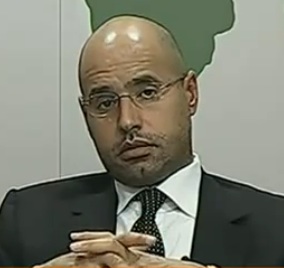 An address from Muammar al-Gaddafi’s son, Saif al-Islam al-Gaddafi, was aired on television in Libya early on February 21. Saif al-Islam told Libyans he had come without a prepared speech and was going to speak from his heart and mind.
An address from Muammar al-Gaddafi’s son, Saif al-Islam al-Gaddafi, was aired on television in Libya early on February 21. Saif al-Islam told Libyans he had come without a prepared speech and was going to speak from his heart and mind.
The address (which you can read here) was given as Tripoli was turning into more of a battlefield. Snipers were firing in Saha Al Khadra. His father’s “thugs” were allegedly going into hospitals and killing Libyans who had been out in the streets and been wounded.
Rumors are circulating that Saif al-Islam was shot. Some of the unconfirmed reports say Saif al-Islam is dead and his father and some from the Gaddafi family has fled. Muammar has gone to Venezuela, some reports allege.
The death of Saif al-Islam is possible, but until there are reports which go beyond unconfirmed, this is largely a distracting story. What Saif al-Islam said in the recorded address that aired on February 20 is much more important.
Saif's Address to Libya

The third episode of this weekly podcast, which looks at stories related to WikiLeaks from the past week, featured guest Michael K. Busch, who teaches international relations at the City College of New York, where he is also program coordinator at the Colin Powell Center for Policy Studies. He has posted on blogs on released cables on WikiBlogged, and he is listed as a resource in the back of Greg Mitchell's recently published book, "Age of WikiLeaks," which you can purchase in print on Blurb.com or in e-book form off of Amazon. [Follow him on Twitter @michaelkbusch]
The program for this week's show was dedicated to protests and violence in the Middle East and North Africa (MENA). The show will provide updates on what is happening in the region and discuss some released WikiLeaks cables that provide context for what is happening.
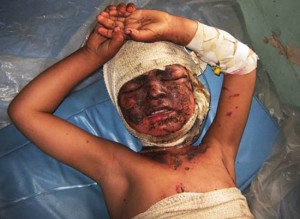 The Norwegian newspaper Aftenposten has published an article on NATO, US, and the Red Cross and the Bala Baluk massacre on May 4, 2009. The article features a cable that shows the Red Cross put together a report that raised significant doubt about military reports on the number of civilians killed. The cable reveals how a PR campaign kicked into gear to sell the idea that the deaths were not intentional and to skew coverage of the event to fit the interests of NATO and US forces in Afghanistan.
The Norwegian newspaper Aftenposten has published an article on NATO, US, and the Red Cross and the Bala Baluk massacre on May 4, 2009. The article features a cable that shows the Red Cross put together a report that raised significant doubt about military reports on the number of civilians killed. The cable reveals how a PR campaign kicked into gear to sell the idea that the deaths were not intentional and to skew coverage of the event to fit the interests of NATO and US forces in Afghanistan.
Muammar al-Gaddafi came to power in Libya on the 1st of September 1969 through a military coup which proclaimed the Libyan Arab Republic. Now he is the longest serving national leader that does not belong to a royal family. His stance on international affairs has mostly been conflictive and aggressive in nature, although after a long list of disputes, such as financing terrorism worldwide or military clashes with the U.S., he moderated his policies seeking collaboration with international corporations, especially with the Bush Administration.
In the early years of his regime Gadaffi set up a system based on what he called Islamic socialism. In practice this meant a system based on popular or direct democracy, where the population would be organized in communes or popular councils so as to personally elect their leaders. The state was built upon these units and controlled the larger companies, leaving the small ones for private ownership. In 1975 he started publishing a recollection of his philosophy in what he named the "Green Book", where he called the system in Libya the Third International Theory, a third way in between capitalism and communism. He also called his form of government Jamahiriya (a term coined by him), often translated as “republic of the masses”, thus officially making Libya the Great Socialist People's Libyan Arab Jamahiriya. After some years Gaddafi stepped down from his leading position in the General Peoples Committee (the ruling governmental organ) and is now considered a spiritual guide under the title of “Brotherly Leader and Guide of the Revolution".
A recent cable, from 2010, announces: “Jordan continues to face some of the most troubling challenges of King Abdullah's 10-year reign.¨ These problems are a deficit of USD 1.43 billion, unstable regional politics, originated from the continuous privilege of rural communities in the East Bank over urban communities with larger Palestinian populations, rigged elections and unequal political rights (09AMMAN813). The cables also reveal that this inequality is created by the government and pushed through by force: “The King's economic and political changes face domestic opposition from tribal leaders and an array of entrenched East Bank interests. The latter include many in the military, security services, and bureaucracy, who enjoy a disproportionate share of the current system”. (10AMMAN329).
According Amman News, Secretary General of the Popular Unity Party Saeed Dhiyab stated that “the clashes were instigated by a group of hooligans, and charged that security forces condoned the violence by not intervening to break out the fights”. The current unrest in Jordan seems to be -once again-, the response of the population towards a whole history of repression and injustice practiced by its government. The clashes started on the 18th of February in the capital, Amman, between protestors calling for political and economic reform, and a group for "Loyalty and Belonging" to King Abdullah II. The clash produced an unconfirmed number of victims. Foreign journalists reported violent threats to confiscate their cameras and the media is still gagged by the government.
Every day the constant flow of leaks reveals why the people are fighting so hard to tear down the regime and write a new constitution: they show Bahrain as a country based on media manipulation, government lobbying and all sorts of corruption and trafficking of influences.
Policies in Iraq
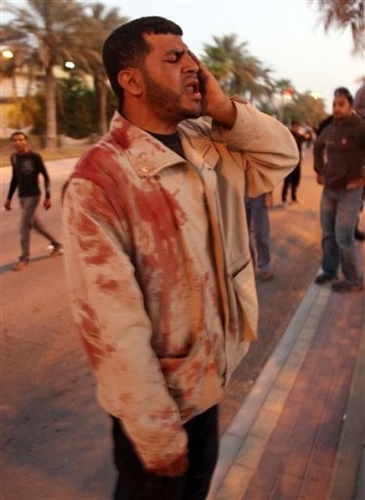 The streets of Bahrain are becoming increasingly violent. Security forces are using live rounds on protesters. Just over a day ago, right before dawn security forces ambushed protesters camping peacefully in the Pearl Roundabout, an area they had turned into their “Tahrir Square.” Many were injured, a few were killed. And, the world is witnessing the brutal discriminatory practices often used by the regime against Shia citizens and activists who dare to criticize the regime or exercise freedom of expression.
The streets of Bahrain are becoming increasingly violent. Security forces are using live rounds on protesters. Just over a day ago, right before dawn security forces ambushed protesters camping peacefully in the Pearl Roundabout, an area they had turned into their “Tahrir Square.” Many were injured, a few were killed. And, the world is witnessing the brutal discriminatory practices often used by the regime against Shia citizens and activists who dare to criticize the regime or exercise freedom of expression.
For years, a monarchy headed by King Hamad bin Isa al- Khalifa has come under sharp criticism for its use of torture. Amnesty International published a report on February 11 titled, “Crackdown in Bahrain: Human Rights at the Crossroads.” And now, WikiLeaks has released several cables detailing the torture of political prisoners and other Bahrainis.
Theme by Danetsoft and Danang Probo Sayekti inspired by Maksimer